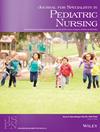The efficacy of interventions provided by nurses to improve glycemic control of children with type 1 diabetes: A systematic review
Abstract
Purpose
Nurses have a very important role in diabetes education of children and adolescents, however, no systematic review has been performed that evaluates the effectiveness of the independent interventions of the nurses. This systematic review aims to identify and assess randomized controlled trials (RCT) that included interventions implemented by nurses to improve glycemic control for children and adolescents with type 1 diabetes.
Eligibility Criteria
PubMed, the Cochrane Central Register of Controlled Trials, Scopus, Web of Science, Science Direct databases were systematically searched up to 2022. Interventions provided by nurses for any child ≤18 years diagnosed with type 1 diabetes mellitus were included.
Sample
Seven RCT articles met our review criteria.
Results
All included studies were published between 2005 and 2021. Studies varied in terms of intervention type; telephone case management, coping skills training, motivational interview as well as home visit education programs. Interventions were found to significantly decrease the HbA1c level in three of seven studies.
Conclusions
Our systematic review suggests that nurses can improve the glycemic control of children with type 1 diabetes by conducting care interventions. According to current evidence, this study suggests that telephone contact by nurses and motivational interviewing can be beneficial in improving glycemic control in this population.
Implications
Nurses may encourage children and adolescents with diabetes to engage in self-management of their glucose levels. There is a need for more randomized controlled studies assessing the efficacy of nursing interventions for children with type 1 diabetes.

 求助内容:
求助内容: 应助结果提醒方式:
应助结果提醒方式:


